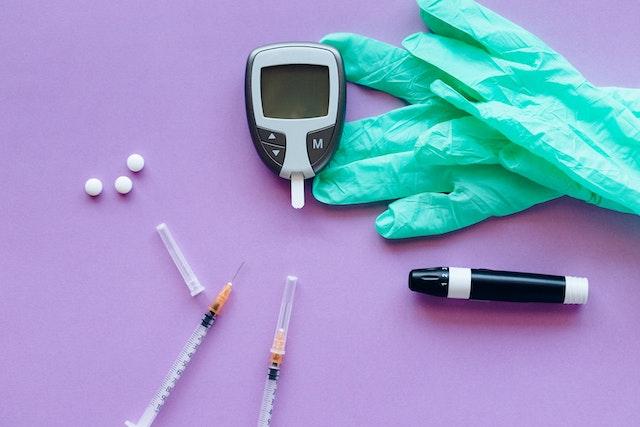Glucose Metabolism
Both insulin and glucagon are essential in controlling glucose levels in the body. We have been looking at diabetes for decades through the lens of a bi-hormonal approach to glucose control. However, this viewpoint must fully explain why patients and healthcare providers need help maintaining stable blood sugar levels.
The intensive use of insulin for diabetes management is laden with difficulties and dangers. Unpredictable glucose changes are prevalent, as are hypoglycemia and weight gain, despite our best attempts to prevent them. Other glucoregulatory hormone shortages or abnormalities may contribute to these difficulties. A multi-hormonal approach to glucose homeostasis has emerged as scientists learn more about the functions of various pancreatic and incretin hormones.
Understanding Diabetes
Since insulin was discovered in the 1920s, our knowledge of diabetes as a metabolic illness has advanced considerably. The hormone insulin was shown to be a significant controller of glucose homeostasis and secretion.
Later, it was thought that diabetes was caused by an insulin shortage, either total or partial. Insulin has been the cornerstone of treatment for those with insulin-deficient type 2 diabetes and the sole pharmacological option for people with type 1 diabetes since its discovery.
We now have a deeper appreciation for how many distinct hormones work together to maintain healthy glucose levels in the body, thanks to identifying new hormones with glucoregulatory functions.
Glucagon was first identified as a potent inducer of glucose synthesis in the liver in the 1950s. This finding contributed to developing a more nuanced understanding of the dynamic between insulin and glucagon and, ultimately, adopting a more comprehensive “bi-hormonal” approach to diagnosing diabetes.
In 1987, scientists discovered amylin, a second ß-cell hormone. The function of amylin was shown to be complementary to insulin, and amylin deficiency was seen in diabetics. This newer discovery led to a conception of glucose homeostasis in terms of a complex network of pancreatic hormones.
Several gut hormones were discovered around the middle of the 1970s. Glucagon-like peptide-1 (GLP-1) is an incretin hormone that has been shown to have a significant role in keeping glucose levels stable. Current knowledge suggests insulin, glucagon, amylin, and incretin regulate glucose homeostasis.
The Body’s Glucose Metabolic Process
Sugars may be broken down into their parts, and glucose is one of the simplest. Glucose is a primary fuel source for the body’s organs, tissues, and metabolic activities, and it circulates throughout the body as blood glucose.
Glucose is produced in the human digestive system in response to sugar consumption and is used for cellular refueling. As glucose from ingested carbs enters the circulation, insulin is secreted by the pancreas to transport the glucose to the cells, where it may be used for energy or stored.
Your blood sugar may also be impacted by the amount of fat and protein you consume. The breakdown of fat into fatty acids is a slow process compared to the rapid deterioration of carbohydrates. Although animal studies have shown that a high-fat diet is related to an increased risk of insulin resistance, studies in humans have found that a high-fat meal has a modest influence on post-meal glucose and insulin.
Protein is metabolized similarly to carbohydrates, although it has a distinct impact on blood sugar levels. Proteins are first broken down into amino acids in the stomach, with further digestion occurring in the intestines. Some amino acids are metabolized in the liver into glucose, while others are synthesized into protein for the muscles. Protein’s impact on blood sugar levels might be muted when there’s already enough insulin in the system.
Carbohydrates are the body’s go-to for getting its hands on glucose, which is used for metabolic processes. Without carbohydrates, the body may produce glucose through gluconeogenesis from fatty acids (via glycerol) and proteins (by the amino acid glutamine).
The glucose uptake into tissue cells and its subsequent conversion to adenosine triphosphate (ATP) is known as glucose metabolism. The breakdown of glucose into pyruvate and ATP is known as glycolysis, and it occurs in the cytoplasm of mitochondria.
ATP is the body’s “energy currency,” required for everything from muscular contraction to nerve signal transmission to cell division and growth to initiating chemical processes necessary for producing hormones, cell membranes, and countless other essential components.
Do You Require Glucose for Your Body to Function?
Yes. As an immediate fuel source, glucose is the body’s first choice. Among the many body parts that may run on glucose are:
- Brain: Unless you’re starving for a long time, glucose is the only thing your brain uses for energy. Without the ability to store energy, the brain needs a constant supply of glucose, which is why it needs 120 grams daily. In terms of calories, that’s around 420.
- Muscles: Muscles use glucose, ketones, and fatty acids as primary fuels. Forces account for almost three-quarters of the body’s total glycogen storage. Quick bursts of activity are best powered by glucose.
- Adipose tissue: Adipose tissue is the name for the fat cells that everyone wants to get rid of.
- Triacylglycerols, the primary energy storage mechanism for fat cells, cannot be made without glucose. Determining whether fat cells release fatty acids into the circulation to be utilized as the glucose level within the cells aids energy.
- Kidney: As the kidneys filter blood plasma about 60 times daily, glucose is reabsorbed each time. The kidneys can undergo gluconeogenesis and produce glucose when there’s a lack of food or when glucose isn’t easily accessible for use as an energy source.
- Liver: As the body’s primary metabolic organ, the liver breaks down glycogen stores and performs gluconeogenesis to generate glucose for circulation. When you’re fasting, your liver breaks down fat into ketone bodies.
- Glucose is essential for the body to operate normally. Glucose may be obtained from carbohydrates in the food or synthesized by the liver and muscle cells (a process known as gluconeogenesis). Ketones may be used as an energy source when carbs are scarce in the diet.
Is There an Optimal Diet for Boosting Blood Sugar Levels?
Ketones help fuel and protect the body from the glucose surges resulting from eating or drinking certain high-glycemic carbs or sugary beverages. This is a selling factor for low-carb diets like the ketogenic diet.
Diets High in Protein and Fat and Low in Carbohydrates
There is growing evidence suggesting health advantages to eating a lower-carbohydrate diet. However, many individuals find that low-carb diets, especially very low-carb diets like the ketogenic diet, need to be more sustainable over the long term.
Additionally, a low-glycemic diet, which emphasizes choosing foods and meal combinations that induce a low-glycemic response, may be as effective in promoting weight reduction and enhancing insulin sensitivity.
Exercise
Stabilizing blood sugar levels is aided by exercise, which, according to studies, improves insulin sensitivity and helps recover glucose metabolism in insulin-resistant muscles for up to 48 hours after that. Understanding this helps put the research above findings contrasting the effects of a high-glycemic and low-glycemic diet, which both required participants to exercise, into perspective.
Recommendations
Choose a diet restricting processed meals and eating more nutrient-dense natural foods. Make good use of your workout time. Avoid sugary beverages (make flat water and sparkling water your new BFFs), and make sleep a priority. You’ll see improvements in glucose metabolism and body fat percentage.
Frequently Asked Questions
How does glucose effect metabolism?
Energy metabolism revolves around glucose. Glucose is the universal fuel for the developing animal and is produced from the breakdown of all three macronutrients (carbohydrates, lipids, and proteins).
What effect does metabolism have on blood sugar levels?
Metabolism is the physiological process through which the body obtains energy from the food it consumes. Low insulin levels, a result of diabetes, hurts metabolism. Because of this, the body cannot save any of the energy it receives from meals.
How is glucose metabolized by the body?
Too much glucose in the bloodstream causes the pancreas to secrete insulin, which causes cells to absorb glucose (such as muscle cells) and bring blood glucose back to normal levels. When insulin is present, the body shifts its metabolism away from fat and toward glucose as its primary fuel source.
What do we name the chemical reactions that turn glucose into energy?
Glycolysis refers to the metabolic process through which glucose is transformed into pyruvate.
Is glucose a necessary substrate for metabolism?
Yes. If you want to fuel your body, glucose is your best bet. Among the tissues and cells in the body that may utilize glucose for energy are: Except for when you’re starving for an extended period, your brain runs almost exclusively on glucose.
Is a fast metabolism associated with an increased risk of developing diabetes?
If you have diabetes, your metabolic rate won’t change any differently than it would otherwise. It’s not the metabolism that diabetes directly affects. However, it alters insulin sensitivity, which may affect health and weight.


